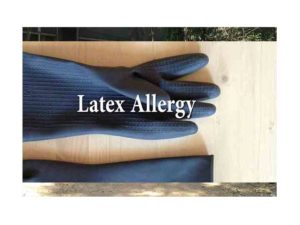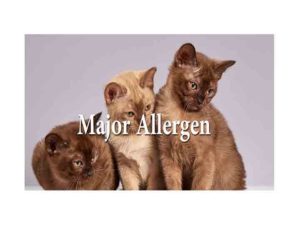Management of Allergic Disorders
These include treatment and prevention.
Prevention of Allergic Disorders
Allergy is an immunologically mediated reaction to substances which are considered harmless to most of people. These harmless substances are call Allergens.
Risk factors For Allergic Disorders:
There are several factors which increase the risk of allergic diseases.
Risk factors for Allergy include:
- Family history of Allergy– If one parent is atopic then there is 50 % increase risk of allergic disease for his child. If both parents are atopic then more than 62 % risk increase of allergic disease in their child. If none are atopic then chance is less than 20 %.
- Serum IgE >100 IU/ml– Increased serum IgE level may be a risk factor. But this is not consistent.
- Tobacco Exposure– Tobacco exposure in children increase the risk of developing allergies.
- Animal Contact– Pet/Animal dander, saliva, urine, hair, feather are the sources of antigens. Cat antigen Fel d1 , Dog antigen Can f1 are important aeroallergen.
- Dust Mite Exposure– House dust mite is a major allergen worldwide.They are very small in size. They can be seen only by microscopic. They feed human skin scales and debris. Dust mite is a perennial Asthma.
- Eczema– Atopic Dermatitis or Eczema is a part of the atopic march. Eczema is is associated with the development of food and environmental allergies.
Prevention of Allergic Disorders
Avoidance of the offending allergens are the most important. A person suffering from allergic disorders must be cautious when eating in a restaurants and in social events.
If you have allergy, then follow these steps:
- Know what you’re eating and drinking. Always read the food labels.
- If you are allergic to pollen then stay at home during pollen season.
- If you have already had a severe reaction/anaphylaxis, wear a medical alert bracelet or necklace that lets others know that you have a food allergy.
- Have an action plan ready. Always have your epinephrine /adrenaline autoinjector with you.
- Be careful while eating at restaurants.
- Plan your meals and snacks before leaving home.
If your child has allergy, you must follow few steps to ensure your child is safe:
- Always notify key people about the child’s allergy. Inform your child care providers about the allergy. Discuss with school personnel and teachers about the condition. Emphasize that allergy may be life threatening and may require urgent intervention.
- Explain symptoms of allergic disease to persons who spend time with the child.
- Always have a written action plan. This plan should include the appropriate management strategies to care the child in case of allergy. Give one copy of the plan to school authority.
- Have your child wear a medical alert bracelet or necklace.
Lifestyle and home remedies for Food Allergy
Avoidance of the offending food in the utmost important in food allergy.
- Don’t assume offending food in any form. Always check food labels while you eating outside especially in restaurants and in social events.
- If you are in doubt then don’t eat. One must kept in mind that even a very small amount of food particle can trigger symptoms of food allergy or may trigger anaphylaxis. So if you are in doubt then it is better to avoid the food.
- Involve caregivers of the child. If your child has allergy, then you have to inform the school staff and other care givers of the child so that they can manage the child in case of any symptoms of food allergy.
- Hand washing/ clean kitchen room.
Prevention of Anaphylaxis
It is extremely crucial to alert all the time and follow few preventive measures to reduce the risk of anaphylaxis.
The following can help:
- Identify any triggers – Attend any allergy clinic to know what the substances you are allergic to. This will help you to plan your management strategy.
- Avoid triggers whenever possible – Once you identified the possible factors for triggering anaphylaxis then you can take avoidance measures to reduce the risk. For example if you are allergic to certain food then you have to shop very carefully.
- Carry your adrenaline auto-injector at all times with you– use it in emergency situation.
Treatments of allergic disorders:-
Medications
- Antihistamines: Most common medicine used in mild to moderate allergic reaction.
Antihistamines include:
- Fexofenadine
- Levocetirizine
- Cetirizine
- Diphenhydramine
- Desloratadine
- Loratadine
-
Decongestants:
Decongestant can be used to relieve a stuffy nose and sinus pressure. But decongestant can only be used for shorter time usually for three days. Longer time can cause a rebound effect, means once you stop the medicines your symptoms will actually get worse.
Decongestants include:
- Oxymetazoline
- Pseudoephedrine
- Phenylephrine
- Cetirizine with pseudoephedrine
One should be kept in mind that history of abnormal heart rhythm, heart disease, history of stroke, anxiety, a sleep disorder, high blood pressure, or bladder issues is important before commencing decongestant medication.
-
Eye drops and nasal sprays:
Eye drops and nasal sprays can help relieve itchiness and other allergy-related symptoms for a short time. However, depending on the product, you may need to avoid long-term use.
Like decongestants, overusing certain eye drops and nose drops can also cause a rebound effect.
-
Corticosteroids:
Corticosteroids can help with inflammation and immune responses. These do not cause a rebound effect. Steroid nasal sprays are suitable for long-term use. Nasal steroid medications are the most effective medications.
-
Immunotherapy:
Your doctor may recommend immunotherapy, or allergy shots if you have severe allergies. You can use this treatment plan in conjunction with medications to control your symptoms. These shots decrease your immune response to particular allergens over time. They do require a long-term commitment to a treatment plan.




